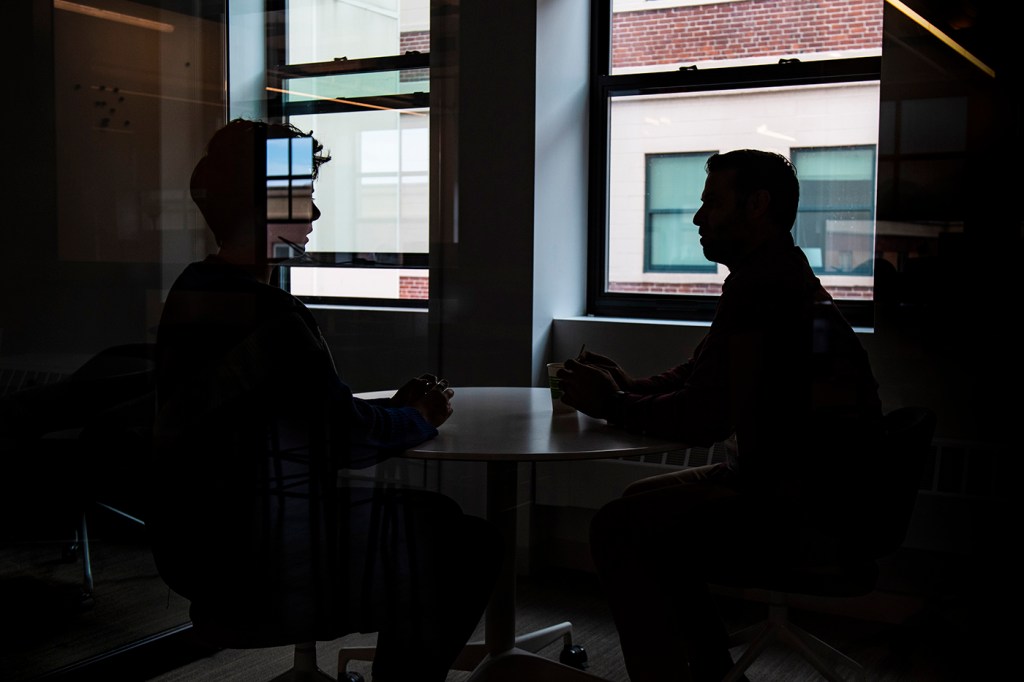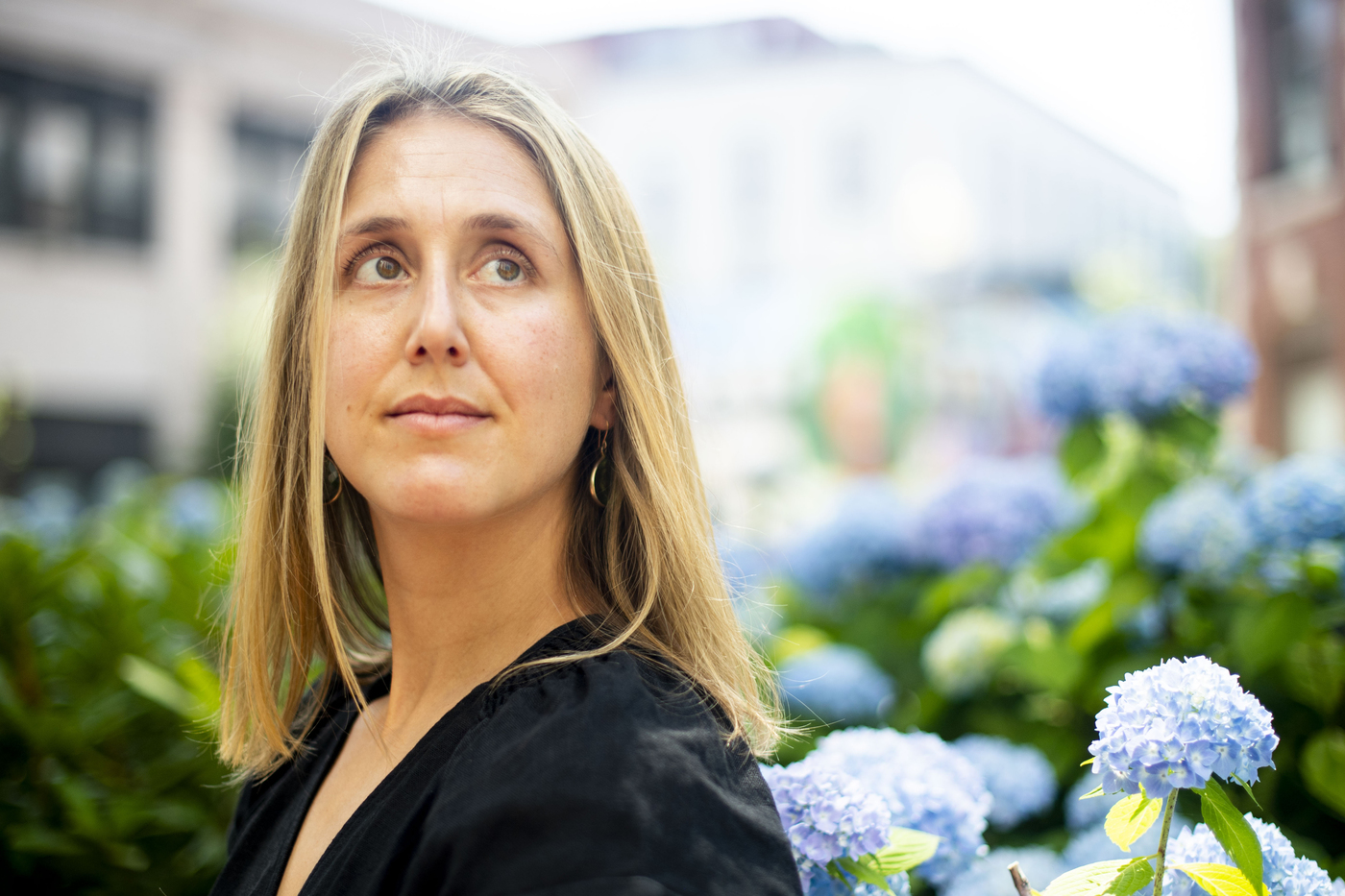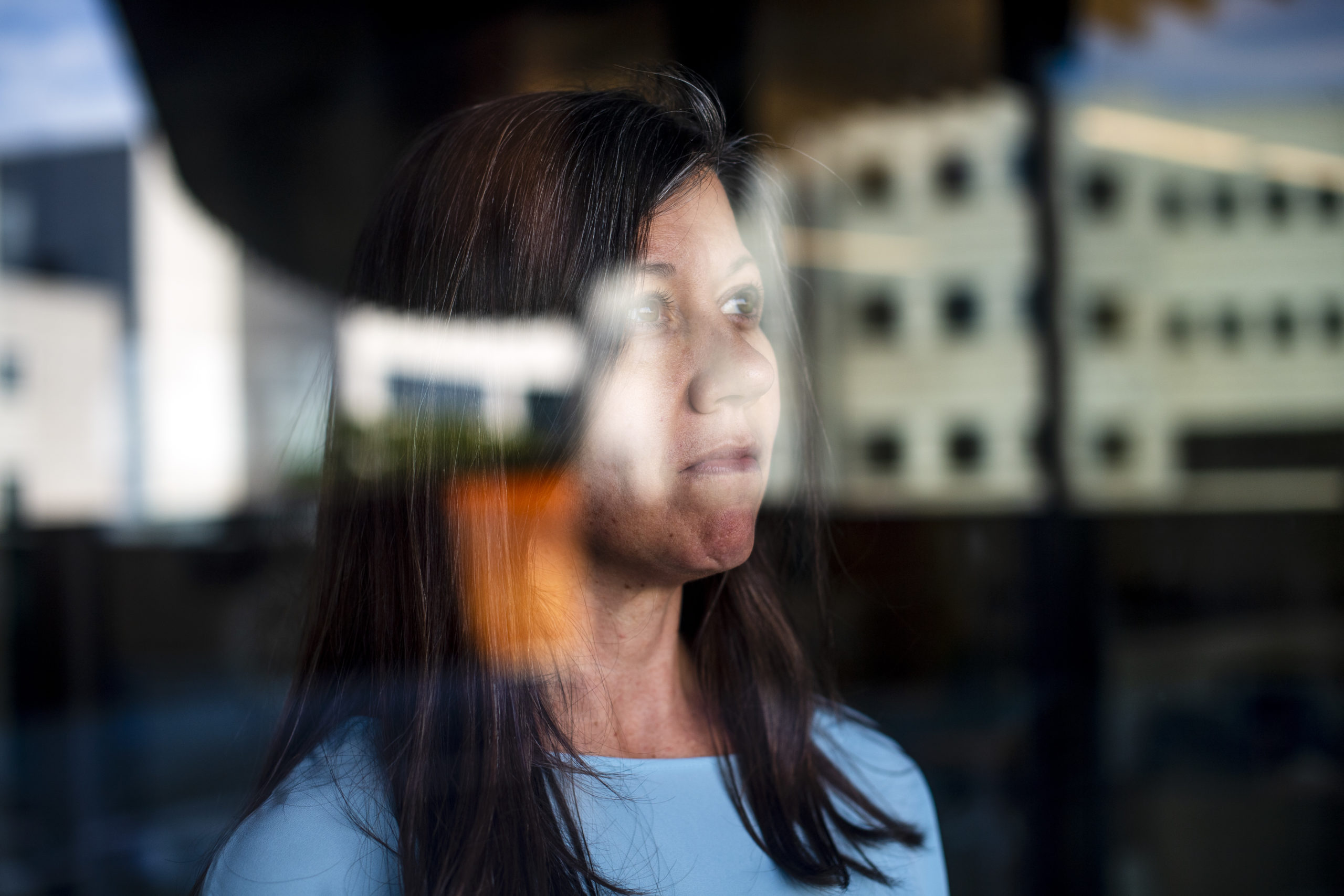Mental health needs are on the rise. Northeastern can help.

Therapists are reporting a surge of new clients seeking help with the stress, isolation and loss brought on by the pandemic, an increased demand that reflects a period of prolonged anxiety as well as a new acceptance of mental health treatment.
“The last year and a half has taken a pretty significant toll on students and our entire campus community,” says Christine Civiletto, a psychiatrist and interim director at Northeastern’s Health and Counseling Services.
The mental health fallout came not only from the disease, but the shutdown that followed. On top of fears about contracting or losing a loved one to COVID-19, the shutdown and required social distancing limited access to social support systems and drastically disrupted daily schedules.

Margo Lindauer, director of the Domestic Violence Institute at Northeastern’s School of Law, poses for a portrait. Photo by Ruby Wallau/Northeastern University
“Usually we see a slow increase in demand for mental health services throughout the semester, but this fall we were up and running, with students coming in and looking for support right from the get go. In a lot of ways that’s a really good sign. It means students are recognizing much earlier that they need support,” says Civiletto.
Nearly 75% of psychiatrists who treat anxiety disorders saw an increase in demand since the beginning of the pandemic, according to a survey released in November 2020 by the American Psychiatric Association. Sixty percent of those who treat patients for depression reported increased demand.
“The conversation around mental health has shifted quite a bit, and our students are much better at recognizing their needs. They’re having these really open conversations, and it’s empowering for the community to see some of that stigma fall away,” says Civiletto.
A national surge in demand, however, can make it difficult for some to find help.

Interim Executive Director of the University Health and Counseling Services at Northeastern, Christine Civiletto poses for a portrait. Photo by Alyssa Stone/Northeastern University
“A lot of the therapists I know have either stopped taking new patients or have reduced their caseload because they’re impacted by vicarious trauma and burnout,” says Margo K. Lindauer, an associate clinical professor who studies domestic violence.
The US Department of Health and Human services reported a deficit of psychiatrists in 2013, with 45,580 active psychiatrists and 48,320 patients in need of treatment. They estimated that the deficit would grow to more than 6,000 patients by 2025.
A rise in telehealth and other online services have helped those in need find mental health services. Civiletto said a service called Find@Northeastern can connect most students to a qualified therapist in 24 hours. The service is available 24 hours a day, seven days a week for Northeastern students across the globe.
“When they call, they are immediately connected with a licensed mental health clinician who’s available to listen and provide some immediate support,” says Civiletto. “Then they can make recommendations for next steps and potentially refer them to a therapist in the local community.”
The free therapy sessions are unlimited as part of a new benefit this year, says Civiletto. Find@Northeastern offers a cognitive behavioral program to help students manage their studies and time, and full-time students have access to the headspace app, which offers meditation guidance.
Students can also reach out to Active Minds, a national nonprofit organization supporting mental health awareness and education for students.
“The intention is to be able to help students see that they’re not alone, and that support is available wherever they may be. We know that our students are on the move and they’re not necessarily here in Boston,” says Civiletto.
For media inquiries, please contact media@northeastern.edu.





